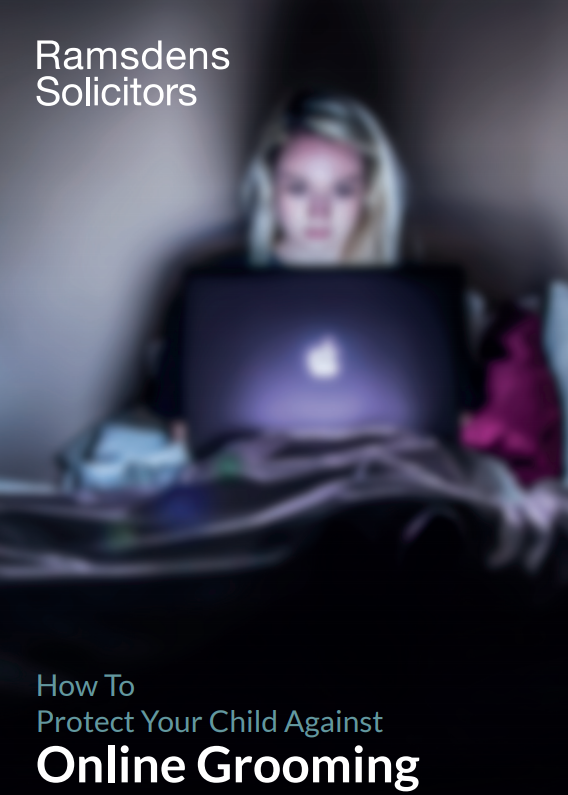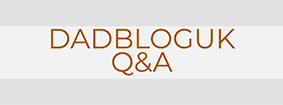I have written many articles on this blog about online safety and digital resilience. As a father of school age children, it’s an issue at the forefront of my mind.

There’s one subject that I have failed to tackle head-on to date. It’s the thorny subject of online grooming.
An opportunity to broach the subject presented itself when I was approached by Natalie Marrison of Ramsdens Solicitors. Natalie has been involved in the prosecution of many individuals accused of these crimes. She has written an ebook for parents so they can learn about the risks of online grooming and better protect their children from potential abusers.
Natalie kindly agreed to take part in a Dadbloguk Q&A. Please do have a read as you can learn all about her work, the book she’s written and hopefully you’ll find what she has to say useful.
Could you please introduce yourself and your role at Ramsdens?
My name is Natalie Marrison and I am the Partner of the abuse team at Ramsdens Solicitors. I work from our Leeds office, however, the department works with cases across Yorkshire and beyond.
I work on recent and historic matters that involve children and adults who have been abused and where the system has failed to act appropriately to protect them from further harm.
You’ve written an ebook called How to Protect Your Child Against Online Grooming. Why did you take this step and can how parents and carers can get hold of a copy?
Working as a Solicitor for over 15 years, I have seen an increase of online child abuse being disclosed to me and across various media platforms.
The technological world has rapidly developed over the last 20 years and with these developments our children have had the means to access, digest and hone their technology skills, far out-stretching the abilities of parents and carers. Prior to this extreme technological development, sexual predators would groom and interact with children directly. Predators of this nature are highly functioning communicators and can effectively hide their true nature. They can engage with children in disguise and in the youngster’s own home, without our knowledge.
I created the ebook to provide a simple and effective tool for parents to access and understand how to protect their children from becoming targets to these individuals. It can be viewed here.
The book focuses on some very serious issues such as online grooming, sexting and so on. What sort of age do children tend to be affected by these issues compared to, say, online bullying?
The NSPCC created a report called How Safe Our Are Children 2018? Following the release of this publication, a total of 41 out of the 43 Police forces across England and Wales and The British Transport Police, provided their statistical data.
Between April 2017 and April 2018, the data showed there were on average nine grooming offences a day. The Police figures also showed that 62% of all recorded cases were committed against girls between 12 and 15 years old and nearly a quarter of all cases were committed against children under 11 years old.
According to a report published by Ofcom in 2017, one in eight young people have been bullied online. This is unsurprising as the same report highlights that almost a quarter of eight to eleven-year-olds and three in four children aged between 12 and 15 have a social media profile.

The book includes a section on online gaming. What are the risks associated with online gaming that parents / carers need to be aware of?
Online gaming has become a source of entertainment for many. However, there are several risks of online gaming and they include:
* Playing online games against others who are not known to the child. These gamers can create fake identifications and lead a child into a false sense of security.
* Online games can include platforms where you can communicate in text or speech to another gamer and grooming can occur very quickly and directly through this communication method.
* Certain games can include a large amount of gamers playing at once. This allows for an introduction to be made to certain characters. You may verbally get to “know” a gamer through their identification name and play with them on various games. The gamer can lead a child to a false sense of security. Once that is established, the youngster may inadvertently provide full names, addresses and telephone numbers. This gives abusers other methods to make a child feel unsafe and force them to perform certain acts in fear of repercussions.
In your experience, where does most parents’ knowledge fall short? Is it knowledge of online safety apps? Is it lackof knowledge about the apps and games their kids are using? Do parents not appreciate that many games and apps come with searchable online profiles etc?
All of the above. Parents’ knowledge of technology falls drastically short of their children, especially when they are constantly downloading new apps and learning about new platforms incredibly quickly.
This only adds to parents feeling they will not understand the online world, even if their children were to explain it to them. However, I would always say that the best way to understand your child’s online presence is to understand and closely monitor the websites they access. Be interested and ask your children to show you the games they play.
Talk to your child about online safety. Having an open dialogue with children about the importance of protecting themselves online is so important.
Online safety needs to be considered by parents on the same level as any other form of protecting your child. Just because the threat online is not visible, does not mean that it is any less harmful.
The more parents monitor their children’s online activity, the safer they will be.
It can’t all be bad. Surely it must be a good thing for kids to have regulated, sensible access to the Internet?
We work in a world that shares data online all the time, including emails, sharing files, PDF documents, Jpegs, audio content etc. All of this can be used to create a more efficient world and one where we are never too far away from our friends and family.
However, this also means that people can exploit those accessing the internet and cause disruption to total devastation of individuals and their family’s lives. Educating your children about the internet and social media safety from an early age will help them in the long run.
As a society that is constantly evolving and developing our relationship with technology and social media, I would like to see the large social media sites who have millions of people accessing them daily to be held more accountable through revised legislation.
How to Protect Your Children Against Online Grooming can be viewed and downloaded by following this link. Do also see the other blog posts I have written on the subject of online safety.







